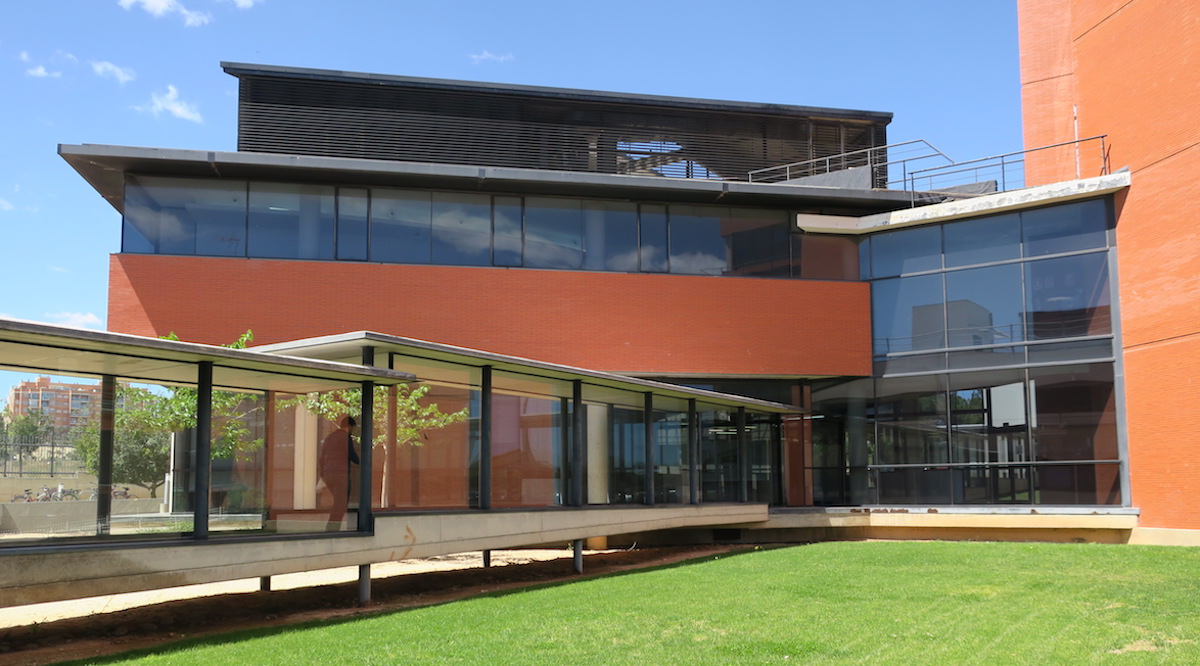The State Research Agency (AEI), under the Ministry of Science and Innovation, has just granted for the second time the accreditation as ‘María de Maeztu’ Unit of Excellence to the Institute of Molecular Science (ICMol), a recognition of scientific excellence and innovation of this centre of the University of Valencia that carries out research on the frontier of knowledge and which is among the most powerful in the world in its area.
The distinctive ‘Severo Ochoa’ Centre of Excellence and the ‘María de Maeztu’ Unit of Excellence aim to improve the capacity of high-level research centres to organise and carry out their research work, improve their strategies to attract, engage, train and retain talent, foster relationships with other reference centres and disseminate research results to the general public. The evaluation and selection process is carried out independently by an international scientific committee made up of researchers of recognised prestige and impact.
The ICMol just obtained this accreditation for the second consecutive time, which is valid for four years and represents an aid of two million euros for this period. The institute will mainly allocate aid to the maintenance of an efficient management structure with support in the administrative and research fields, as well as activities for the dissemination, communication, and transfer of technology. It also envisages concentrating more scientific excellence by attracting talent and promoting scientific leadership, especially among young researchers. Regarding internationalisation, ICMol sources have transmitted the intention of establishing agreements with leading international centres and societies in this field of scientific research. “We will invest all our effort to ensure that ICMol is consolidated as the European centre of reference in Molecular Nanoscience”, said Eugenio Coronado, director of the institute.
The Institute of Molecular Science is a research institute in Nanoscience and Molecular Materials, created in the year 2000 and directed from its beginnings by Professor of Inorganic Chemistry Eugenio Coronado. Its objectives range from the chemical design of molecules and molecule-based materials, to the manufacture and characterisation of molecular devices of interest in fields such as electronics and molecular spintronics, quantum computing, molecular sensors, and the generation and storage of energy.
The ICMol keeps 8 European Research Council (ERC) grants active – 3 Consolidator, 3 Starting and 2 Advanced –, compared to the average of 3.2 ERC per Severo Ochoa / María de Maeztu centre of excellence. It has around 200 researchers – 12 of them within the framework of the ‘Ramón y Cajal’ excellence programme, as well as 3 distinguished researchers of excellence from the Valencian Community (CIDEGENT Program) and a senior ‘Beatriz Galindo’ aid to attract investigative talent trained abroad. The centre also houses a Scientific Unit for Business Innovation (UCIE) of the Valencian Agency for Innovation (AVI) to promote the transfer of knowledge in the Valencian business fabric.
The ICMol has a funding of about 10 million euros per year, 60% of which comes from European projects and the rest are national and regional ones. It has licensed five patents in the past four years.
According to sources from the Ministry, in this year’s call ten ‘Severo Ochoa’ centres of excellence and six ‘María de Maeztu’ units of excellence were distinguished from the total of 55 applications submitted. Eight ‘Severo Ochoa’ centres of excellence have successfully renewed their accreditation: the National Cancer Research Centre (CNIO), the Institute of Mathematical Sciences (ICMAT), the Institute of Photonic Sciences (ICFO), the Institute of Biomedical Research (IRB), the Barcelona Graduate School of Economics (BGSE), the Canary Islands Astrophysics Institute (IAC), the Centre for Agricultural Research (CRAG) and the Barcelona Institute of Materials Science (ICMAB). In addition, it recovers this distinction, which was first received in 2013 by the Catalan Institute for Chemical Research (ICIQ).
As for units of excellence ‘María de Maeztu’, the Institute of Molecular Science of the University of Valencia (ICMol) and the Institute of Technology and Environmental Science (ITCA) of the Autonomous University of Barcelona have renewed their accreditation. Also, this accreditation is recovered by the Institute of Cosmos Sciences (ICC) of the University of Barcelona.
The requirements, levels of demand, criteria and evaluation and selection procedures related to scientific excellence do not establish differences between centres and units, which have been selected for their scientific results and their strategic programs after a rigorous evaluation in which international scientists of recognised prestige have participated.


